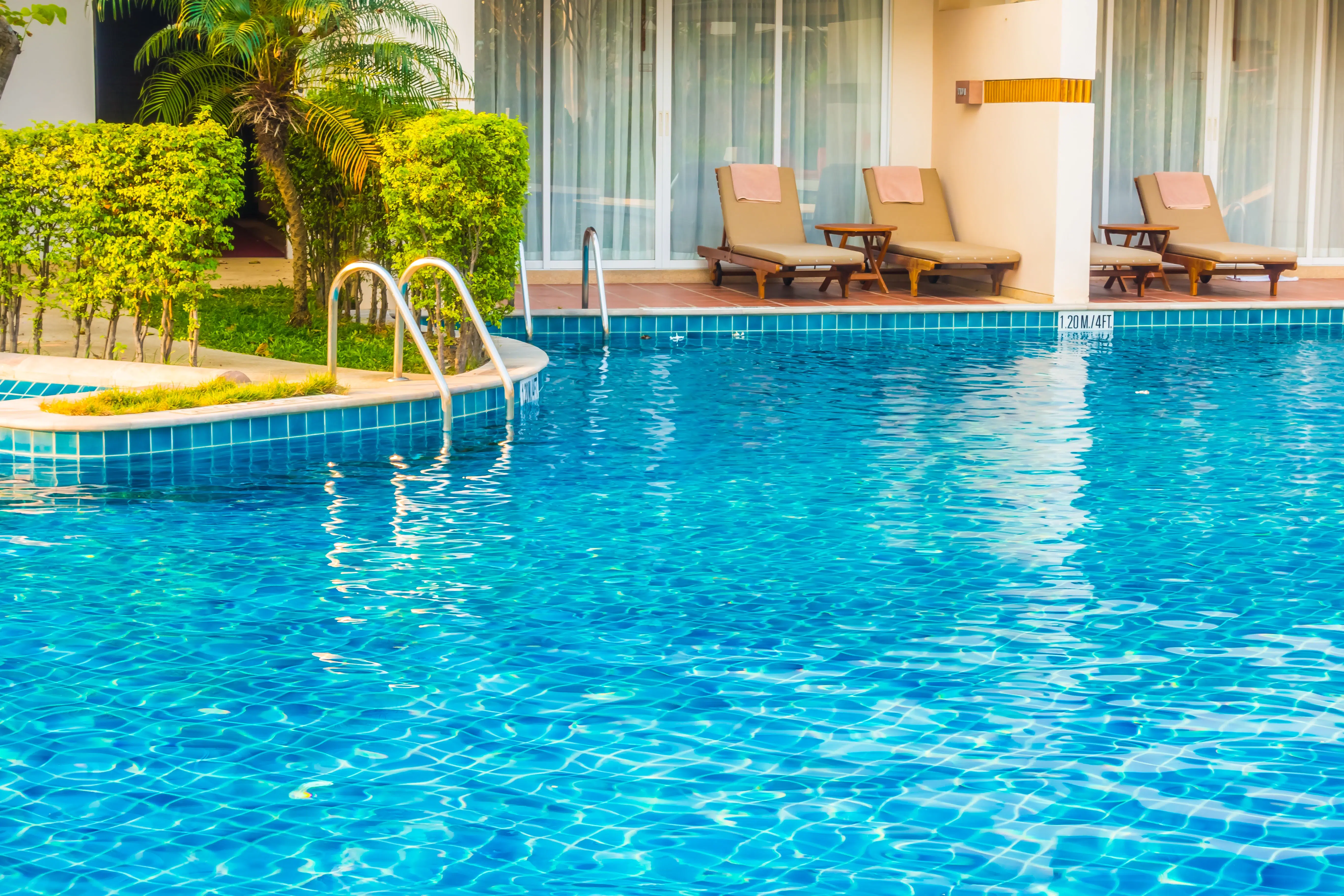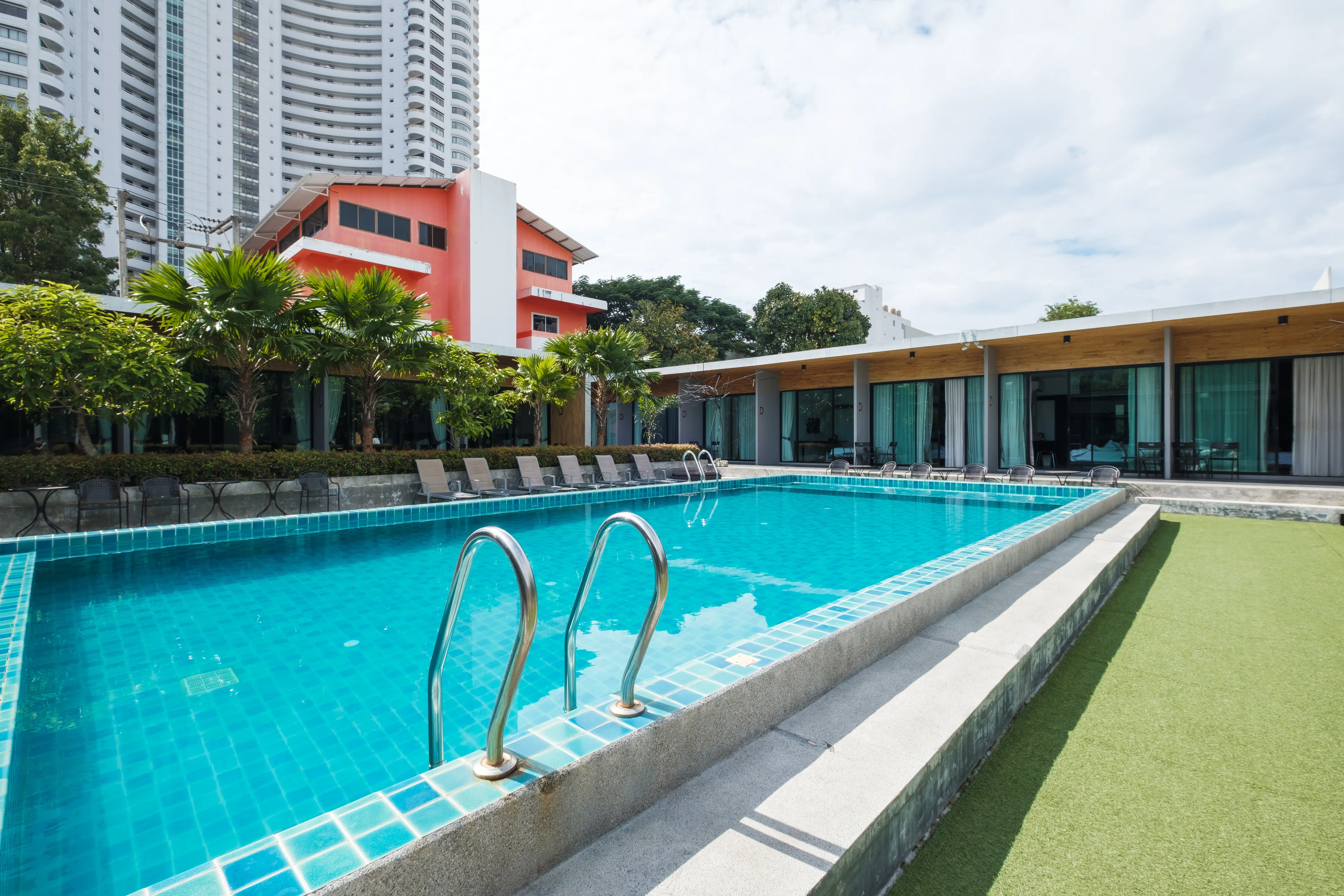A swimming pool is the cherry on top of any property—it’s where people relax, exercise, or simply revel over time. In recent years, one option has surged in popularity: the saltwater swimming pool. As a modern alternative to traditional chlorine pools, it has attracted considerable attention. But how does it stack up? What are the advantages and disadvantages of installing a saltwater swimming pool?
Here’s your comprehensive guide to saltwater pools, covering everything from their benefits to their potential drawbacks. By the end, you’ll have a clearer idea of whether a saltwater pool is the right choice for your home.
What is a Saltwater Swimming Pool?
A saltwater swimming pool uses salt to generate chlorine through a process called electrolysis. This involves a salt chlorine generator that converts salt dissolved in the pool water into chlorine, removing the need to manually add chlorine tablets or liquid.
Unlike the ocean, which contains high concentrations of salt, saltwater pools use a much lower amount—typically around 3,000 parts per million (ppm). This results in water that feels softer and is gentler on the skin, creating a more pleasant swimming experience.
Pros of Installing a Saltwater Swimming Pool
Softer, More Comfortable Water
One of the most immediate benefits of a saltwater pool is how the water feels. Traditional chlorinated pools can leave your skin dry and your eyes red, due to high chlorine levels. In contrast, saltwater pools have far less chlorine, making the water smoother and gentler on both skin and eyes.
Many people describe saltwater pool water as more pleasant—similar to the ocean but without the harsh saltiness. This is especially beneficial for families with young children or individuals with sensitive skin, as it allows for longer, more comfortable swim sessions.
Reduced Chemical Exposure and Lower Maintenance Costs
Saltwater pools are often easier to maintain than traditional pools. The salt chlorine generator automatically converts salt into chlorine, maintaining consistent sanitisation without the need for manual dosing.
This reduces the need for chemical additives, which can be costly over time. While the upfront installation cost may be higher, the savings on chlorine and less frequent maintenance can make saltwater pools more cost-effective in the long term.
Environmentally Friendly
With the growing emphasis on sustainability, saltwater pools appeal to environmentally conscious homeowners. They require fewer chemicals—reducing harm to local ecosystems and water sources, especially if chemicals are not disposed of correctly.
Since chlorine is generated naturally in a saltwater pool, there’s no need for regular shocking, further reducing the environmental impact associated with pool care.
More Consistent Chlorine Levels
Maintaining the correct chlorine level in traditional pools can be difficult. Too little and you risk algae growth; too much and it causes irritation. Saltwater systems provide more stable and consistent chlorine levels, ensuring clean, safe water with less manual adjustment.
The generator works continuously, meaning the sanitisation process is more efficient and the water remains crystal clear with minimal effort.
Less Irritation for Sensitive Skin and Eyes
Saltwater pools are ideal for those with sensitive skin or eyes. They contain significantly lower chlorine levels, reducing the risk of skin dryness, rashes, and eye irritation—particularly for people with eczema or allergies.
This makes saltwater pools a popular choice for families, as they allow for more enjoyable and irritation-free swimming experiences.
Cons of Installing a Saltwater Swimming Pool
Higher Initial Installation Costs
Despite long-term savings, saltwater pools come with a higher upfront cost. The system—which includes a salt chlorine generator and supporting equipment—is more expensive than traditional setups.
Installation can be 30% to 50% more costly than that of a chlorine pool, which may be a barrier for some. However, lower long-term maintenance expenses can help offset the initial investment.
Ongoing Maintenance of the Salt Chlorine Generator
Although saltwater pools require less hands-on maintenance, the generator itself needs regular attention. Its cells must be cleaned periodically to prevent calcium buildup, which can affect performance.
Most salt chlorine generators last around 5 to 7 years and will need replacing, which adds to the overall cost of ownership. Regular maintenance is necessary to keep the system operating efficiently.
Corrosion of Pool Equipment and Surfaces
Saltwater can be more corrosive than traditional chlorine. Over time, metal components—such as handrails, ladders, and heaters—can deteriorate more quickly in a saltwater environment. Even stone and tile surfaces may be affected.
To address this, many homeowners opt for corrosion-resistant materials during construction, which may raise the initial cost but protect the pool’s longevity.
The Need for Regular Salt Monitoring
Even though chlorine is generated automatically, it’s essential to monitor salt levels regularly. If levels drop too low, the generator may not function effectively, impacting water quality.
Testing and occasionally adding salt are simple but important parts of pool care. Inconsistent salt levels can also interfere with the filtration system’s performance.
Not Ideal for Areas with Hard Water
In regions with hard water, minerals can interact with salt and form calcium deposits. These can clog the generator and increase maintenance frequency.
If you live in an area with hard water, this could be a significant consideration, as it may raise long-term upkeep requirements.
Cost Considerations for Saltwater Pools
As noted, saltwater pool installation can cost between $40,000 and $70,000, depending on the pool’s size, features, and design. This includes the pool structure, salt system, and installation costs.
However, saltwater pools tend to be more economical over time due to savings on chemicals, less frequent maintenance, and improved energy efficiency. They also use less water treatments, which can reduce running costs.
Why Choose Build My Pool for Your Saltwater Pool Installation?
At Build My Pool, we specialise in designing and installing custom saltwater swimming pools tailored to your space, preferences, and budget. With years of experience in the industry, our team provides expert advice and quality workmanship from start to finish.
We work closely with you to understand your backyard vision and deliver a fully personalised solution. From design consultation to recommending the right saltwater system, we manage the entire process to ensure a smooth, successful installation. Our goal is to deliver a luxurious, low-maintenance pool you’ll enjoy for years to come.
Conclusion
A saltwater swimming pool can elevate your outdoor space, offering benefits like softer water, fewer chemicals, and lower maintenance. However, it’s important to weigh the higher initial cost and ongoing equipment care.
At Build My Pool, we’re here to help you design and install the perfect saltwater pool. Our team provides expert guidance, high-quality materials, and personalised service to bring your dream pool to life—making ownership easy, sustainable, and enjoyable.
Frequently Asked Questions (FAQs)
Are saltwater pools better than chlorine pools?
Saltwater pools offer benefits such as softer water, reduced maintenance, and fewer chemicals. However, they come with higher upfront costs and require some ongoing monitoring.
Do I still need chlorine in a saltwater pool?
Yes. The pool generates chlorine from salt using a generator. The result is sanitised water with lower chlorine levels than traditional pools.
How often do I need to add salt to a saltwater pool?
Salt levels generally remain stable but can decrease due to splash-out, evaporation, or rain. Most owners top up salt once a year or as needed.
How long does the saltwater system last?
The generator typically lasts 5 to 7 years with proper maintenance. Cleaning the system regularly can help extend its lifespan.
Can I convert my chlorinated pool to a saltwater pool?
Yes. Converting is a straightforward process involving installing a salt system and adjusting the water’s chemistry. It allows you to enjoy saltwater benefits in an existing pool.





